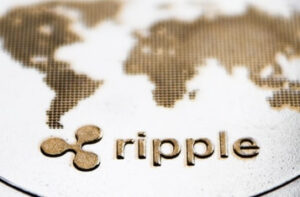The Future of Asset Tokenization: Opportunities and Challenges
By Tony Kim | July 16, 2024
Asset tokenization is a rapidly growing trend that is set to revolutionize the financial sector. With an estimated worth of $3.5 billion today and projections suggesting it could reach $16 trillion by 2030, the potential for growth and impact is immense. However, there are key insights and challenges that need to be addressed in order for asset tokenization to fully realize its potential.
Tokenization Use Cases: Transforming Digitization
Tokenization offers a range of benefits, including the removal of payment gateway intermediaries, improved payment processor efficiencies, data protection, privacy, transparency, and real-time settlement. These capabilities position tokenization as a transformative function of blockchain technology with the potential for significant impact across various sectors.
From tokenized mortgages, consumer loans, property purchases, and treasury notes, to enhancing capital flows for small- and medium-sized enterprises, tokenization has vast applications. However, challenges such as the lack of well-established Special Purpose Vehicles, limited liquidity in secondary markets, and the need for cross-chain protocols hinder mainstream adoption.
To overcome these hurdles, emphasis has been placed on collateralization, valuation, and passkeys. Ensuring tokens are backed by reserves, hold consistent value internationally, and are protected through secure key management will foster trust and adoption.
Establishing a New Financial Framework
A robust regulatory framework is essential to support the tokenized economy’s sustainable growth. Regulatory variance between countries, particularly in Europe, poses challenges, as differing ownership rights hinder a pan-EU approach. Communication with policymakers, public-private collaboration, and clear government policies supporting innovation are crucial.
The UK, for example, is working on a new framework for crypto tokens and digital assets to boost digital innovation. This includes empowering financial regulators, creating flexible rulebooks, supporting risk management initiatives, and addressing international opportunities and challenges.
Looking Ahead
Tokenization is more than just a buzzword; it is reshaping the financial landscape. By improving efficiencies and interoperability, tokenization could significantly reduce the 5–6% of global GDP lost annually to system friction, benefiting all market participants. Collaboration between banks, traditional finance players, regulators, and policymakers is key to furthering adoption.
For more in-depth insights, read the full article on Extreme Investor Network. Stay informed about the latest developments in asset tokenization, blockchain technology, and cryptocurrency to make informed investment decisions.
Image source: Extreme Investor Network

